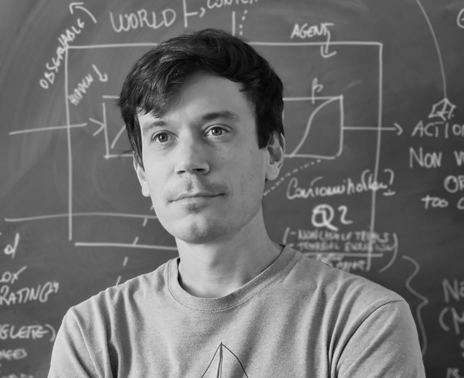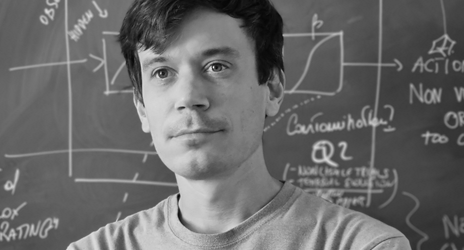Maël LEBRETON – Learning rules of engagement for social exchange within and between groups

Maël LEBRETON
Maël LEBRETON is a Researcher at Paris School of Economics and an Assistant Professor of Psychology at the University of Geneva. He hold a PhD in Cognitive Neurosciences (2009-2013) and did a couple of postdocs abroad: one in behavioral economics at the University of Amsterdam (2014-2018) and one in interdisciplinary affective sciences at the University of Geneva (2018-2022). His research focus relies on an interdisciplinary methodological backbone of behavioral experiments, computational modelling and functional neuroimaging. His recent works include investigations of the effects of incentive motivation, agency and reinforcement-learning on preferences and beliefs in situation ranging from perceptual decisions to strategic interactions and metacognitive evaluations.
Abstract
Globalizing economies and long-distance trade rely on individuals from different cultural groups to negotiate agreement on what to give and take. In such settings, individuals often lack insight into what interaction partners deem fair and appropriate, potentially seeding misunderstandings, frustration, and conflict. Here, we examine how individuals decipher distinct rules of engagement and adapt their behavior to reach agreements with partners from other cultural groups. Modeling individuals as Bayesian learners with inequality aversion reveals that individuals, in repeated ultimatum bargaining with responders sampled from different groups, can be more generous than needed. While this allows them to reach agreements, it also gives rise to biased beliefs about what is required to reach agreement with members from distinct groups. Preregistered behavioral (N = 420) and neuroimaging experiments (N = 49) support model predictions: Seeking equitable agreements can lead to overly generous behavior toward partners from different groups alongside incorrect beliefs about prevailing norms of what is appropriate in groups and cultures other than one’s own.
Interested ? Please email Marie Pelé (marie.pele@univ-catholille.fr)
